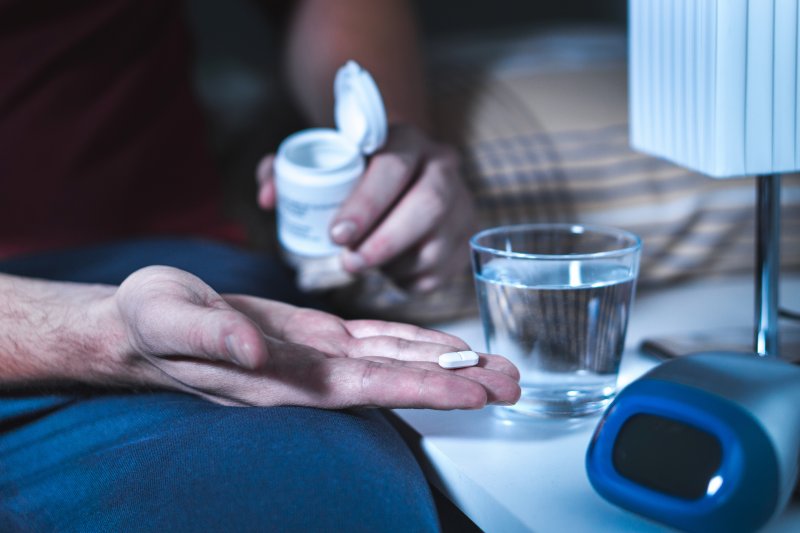
Roughly 30% of adults will suffer from insomnia at some point in their lives. If you’ve been having trouble getting to sleep, you might be thinking of buying sleeping pills in Lutz. While this can help in some cases, there are situations where the medicine will just make things worse – namely, if your insomnia is a side effect of sleep apnea. To understand why a sleep aid could do more harm than good for your disordered breathing – as well as safer, more effective treatments – keep reading to learn more.
How Sleeping Pills Make Sleep Apnea Worse
Many sleeping pills contain benzodiazepines, which are often used to treat muscle spasms and anxiety. They work by relaxing your muscles as well as your mind so that it’s easier to fall asleep. However, if you have sleep apnea, letting your muscles relax further could be a very serious problem.
Sleep apnea – a disorder that can cause you to stop breathing hundreds of times each night – often occurs when muscles and soft tissues in your mouth collapse and block the airway. If these oral structures become more relaxed, a partial obstruction could become full-on blockage. As a result, a mild case of sleep apnea could easily become severe.
The Consequences of Sleep Apnea
People who live with sleep apnea normally suffer from the following issues in addition to insomnia:
- Daytime drowsiness
- Loud snoring
- Short attention span and memory problems
- Health issues like high blood pressure, an irregular heartbeat, diabetes, depression, and heart attacks.
These symptoms will only become more pronounced if your sleep apnea gets worse. That’s why if you notice that you’re having trouble falling asleep, it’s better to see a professional for diagnosis and treatment right away instead of trying to fix it by yourself.
The Right Way to Treat Sleep Apnea
So what’s a better way to deal with sleep apnea in Lutz? In many cases, you can see a dentist that practices dental sleep medicine to have an oral appliance made. These devices position your jaw to keep the airway clear, and they’re custom-fitted so that they fit comfortably in your mouth. Oral appliance therapy is usually offered as a convenient alternative to traditional CPAP therapy, although the two treatments are sometimes combined depending on the severity of your case.
A professional might also suggest a few changes you can make at home to make your nights more restful. For example, losing weight, sleeping on your side, and cutting down on alcohol can all make a big difference (depending on how much of a role obesity, sleeping position, and alcohol consumption play in your sleep apnea).
Insomnia can severely decrease the quality of your life, but it’s important not to be too hasty to treat it; find a sleep expert that can help you get a proper diagnosis so that you can make the best decision for overcoming your sleep disorder.
About the Author
Dr. Jay A. Nelson is a Fellow of the American Academy of General Dentistry, and his practice is the first Florida facility to be accredited by the American Academy of Dental Sleep Medicine. He can prescribe custom oral appliances to help patients breathe easily throughout the night. To schedule an appointment at his practice, Nelson Dentistry and Dental Sleep Medicine, visit his website or call (813) 949-0424.
